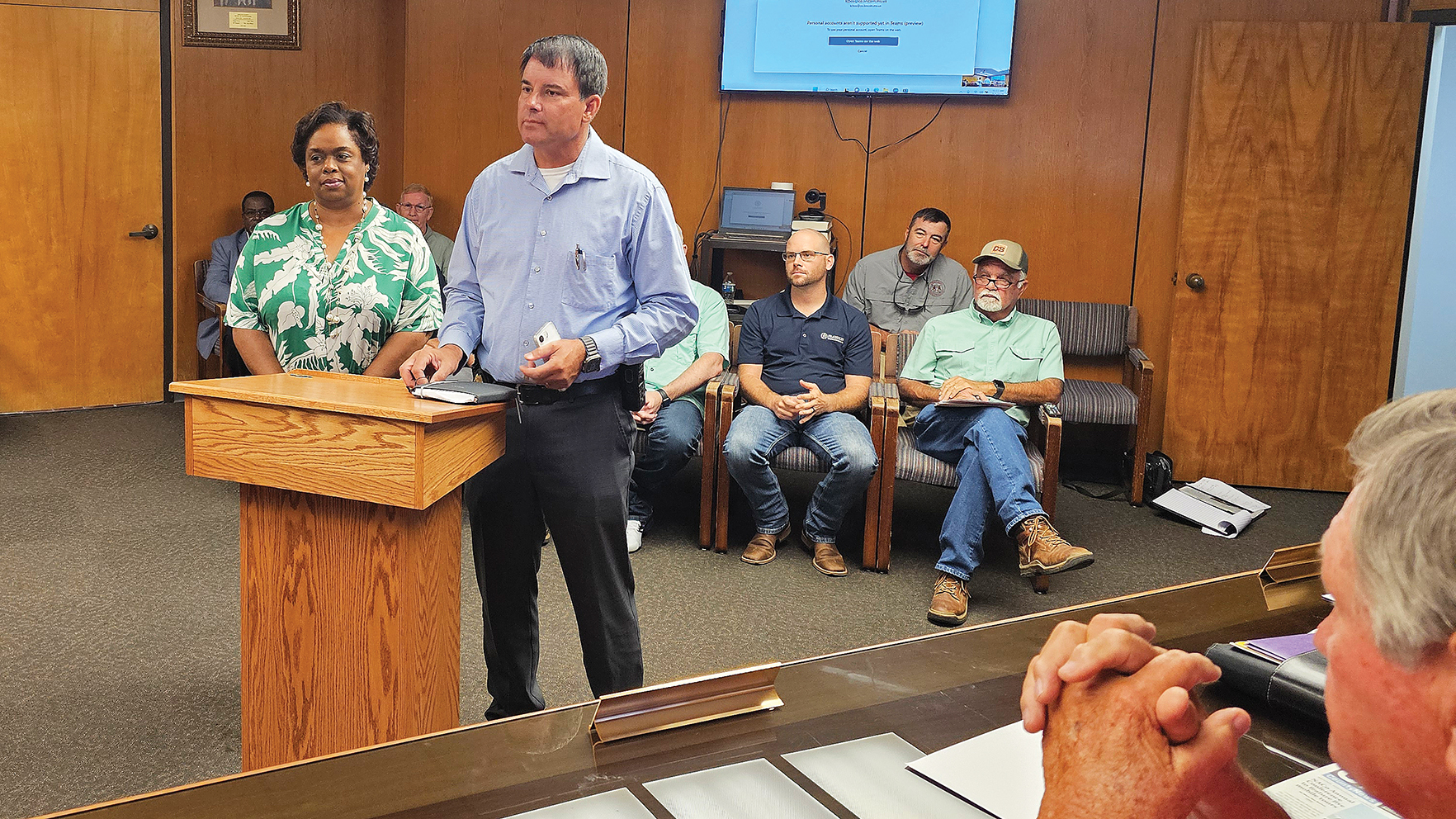Will Medicaid reform show ‘Mississippi Cares’?
Published 8:50 pm Friday, July 26, 2019
The future of a Medicaid reform proposal that promises to cover hundreds of thousands of the state’s uninsured and help struggling rural hospitals could rest in the hands of the state’s next governor.
Of the candidates seeking to replace Phil Bryant, several have been vocal in their support of some kind of Medicaid expansion or reform. One reform proposal — Mississippi Cares — aims to provide care to up to 300,000 Mississippians without health insurance. The added revenue from serving those patients would help shore up rural hospitals that are struggling to keep their doors open, supporters say.
Republicans Bill Waller Jr. and Robert Foster and Democrat Jim Hood have expressed support for some form of Medicaid reform or expansion. Waller and Foster have both advocated letting low-income residents buy Medicaid coverage, similar to a system Indiana adopted when Republican Vice President Mike Pence was governor of that state. Pence’s plan is similar to Mississippi Cares.
Trending
“Right now, if you don’t make anything, you can get Medicaid but if you make a little bit, you don’t get Medicaid,” Waller said. “Something’s wrong with that. Shouldn’t we incentivize people to work? Is that not conservative?”
“They end up going into our emergency rooms and taxpayers, including themselves, end up having to foot that bill,” Foster said. “It’s immoral what we’re doing to them because we’re forcing them to pay taxes and pay for people that don’t work, or don’t work hardly at all, to get health care coverage, but they themselves don’t get any of that benefit.”
Tate Reeves is against expanding Medicaid in any way. Reeves told the Mississippi Press Association that he’s against expansion because he wants small government. He said again at a debate Tuesday night that he will continue to oppose Medicaid expansion.
The proposed Mississippi Cares plan would be a public-private partnership between the State of Mississippi, Mississippi hospitals, Mississippi True and its plan members. Mississippi True is a hospital-owned health plan.
Insurance premiums for the plan would be funded by plan participants — about $20 per month — and investments from hospitals. The plan includes a $100 co-pay. If not employed, participants would have to enroll in a job training, education or volunteer program.
Proponents say no state general fund dollars would be needed to fund the program as premiums from participants and hospital investments would fund the needed 10 percent state share to match the 90 percent federal share.
Trending
“Uncompensated care costs in Mississippi are exceeding $600 million annually,” Mississippi Hospital Association CEO Tim Moore said in a statement announcing the plan. “Mississippi is among the highest in the country in medical debt. Not because our costs are too high — we rank in the bottom third in the country for health care expenditures per person — but because our need for health care is so great and our means to pay for that needed care is so low.”
A recent report identified several hospitals in the state at risk of closing, including Franklin County Memorial Hospital and Lawrence County Hospital nearby. While King’s Daughters Medical Center is not at risk, CEO Alvin Hoover believes Mississippi Cares is necessary to fix the state’s ailing healthcare system.
“When the Affordable Care Act went into effect, hospitals faced tremendous decreases in reimbursement with the promise of getting a big chunk of it back through Medicaid expansion,” Hoover said. “In Mississippi, with no expansion, we have not had the opportunity to make up the difference, our bad debt is rising, and many hospitals are in financial trouble because of it.”
The program will also benefit the state from an economic perspective, proponents say. They cite a report that states the program would create a $1.6 billion increase in gross product annually in Mississippi.
“The cost of uncompensated care could be expected to fall substantially, improving the stability of the state’s system of health care provision,” the Perryman Group’s report states. “In particular, hospitals in rural areas tend to fare better in states which have expanded Medicaid coverage, and studies of the issue have found that rural hospitals had a greater chance of being profitable with expanded health insurance coverage.”
“Healthcare is a quality of life issue. Many working adults have no health insurance coverage in our state. If Mississippi is going to improve the quality of life for our citizens, we can’t continue to do the same thing the same way and expect a different result,” Moore said in a statement. “Plain and simple, what we’re doing, particularly in our Medicaid program, isn’t working. We need Medicaid reform.”
“Mississippi Cares is MHA’s proposal to add coverage for the working poor. It is not more Medicaid, it is Medicaid reform because it requires the new recipients to have a job and pay a premium,” Hoover, KDMC’s CEO, said. “The state of Mississippi will not have to pay a single dollar to draw down the federal dollars to support Mississippi Cares. Hospitals across the state will put up the state match to establish and maintain this program. Mississippi Cares is a good deal for every hospital and every community across the state.”
Jay Hughes, a democrat running for lieutenant governor, said he supports the proposal.
“I believe the Mississippi Cares proposal will help to provide much-needed health coverage for hard-working lower wage earners who became a part of the ‘coverage gap’ that was created when Mississippi decided not to expand Medicaid after the passage of the Affordable Care Act,” he said in a statement.
Delbert Hosemann, currently secretary of state, is also running to be the next lieutenant governor. The republican told a Tupelo newspaper he is open to some type of Medicaid expansion but rejected the terms of expansion under the Affordable Care Act.
“I think we can negotiate out where we can get an affordable expansion,” Hosemann said. “When you get to break even, that’s when you can afford to expand.”





